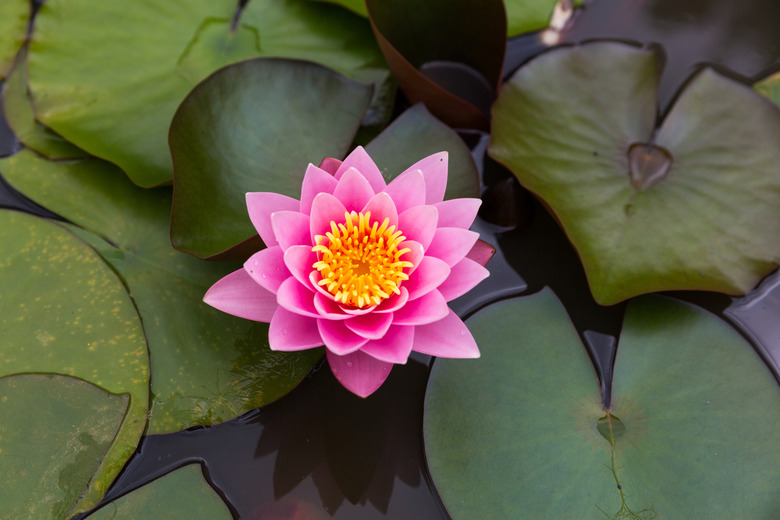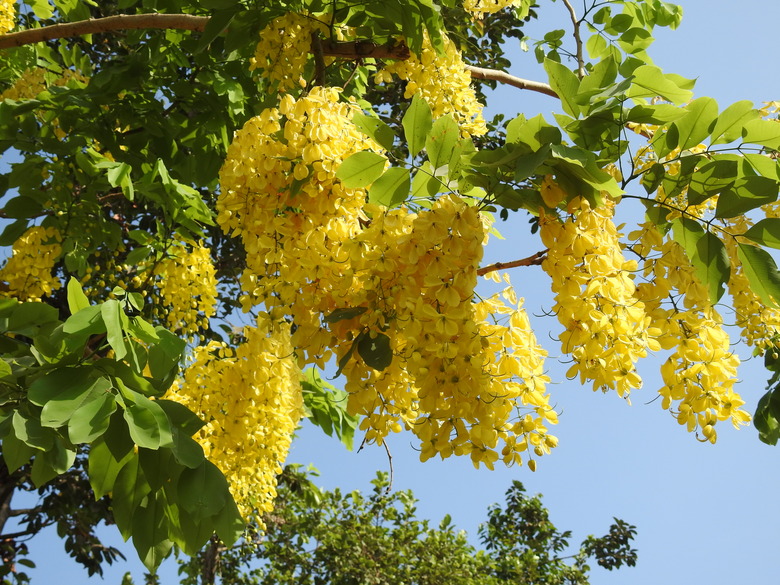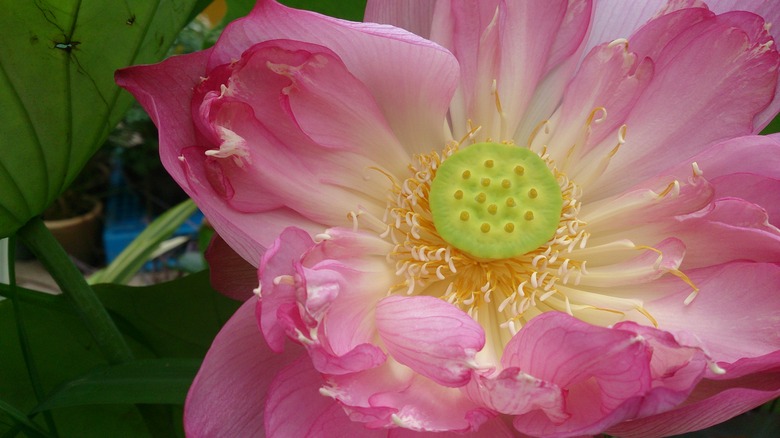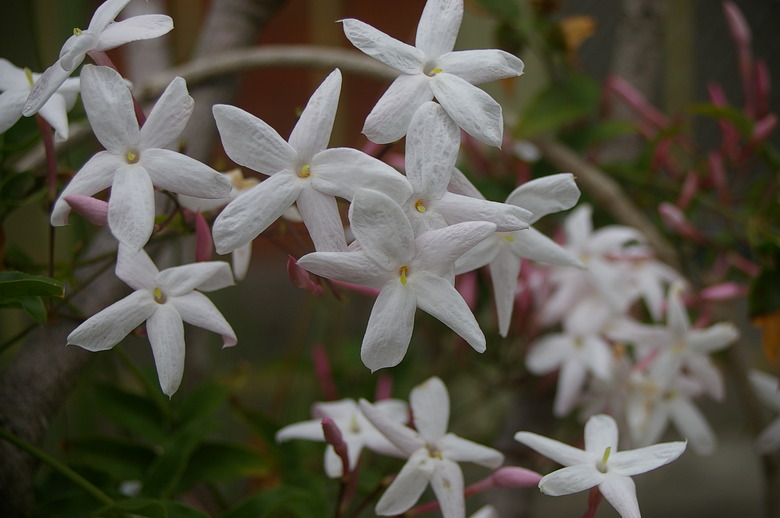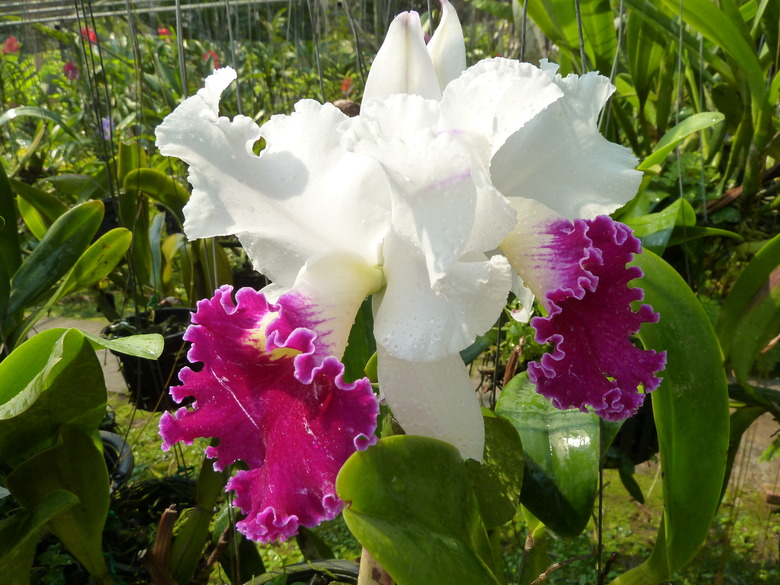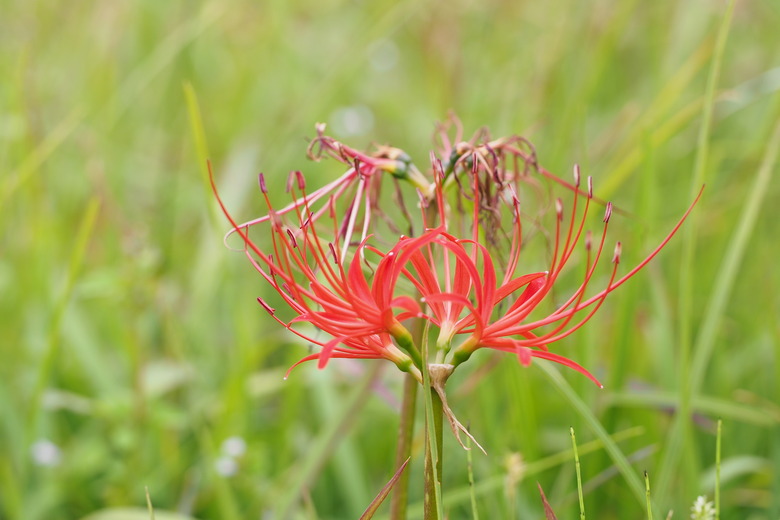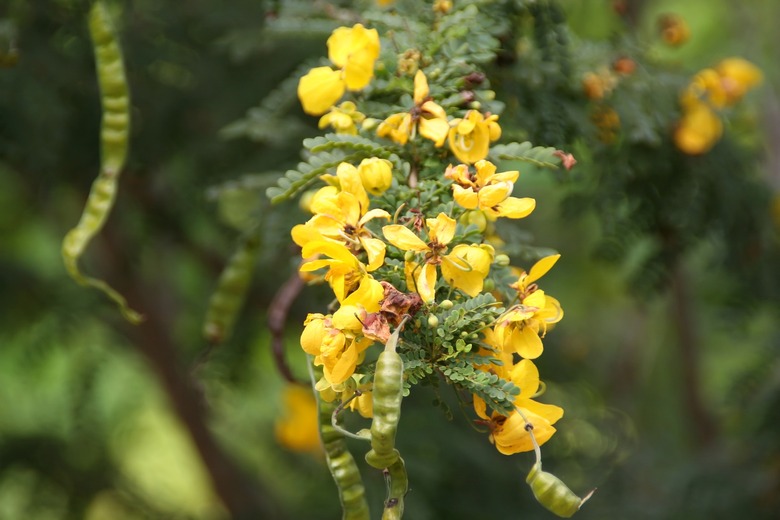What Flowers Are Native To Thailand?
For a land with a long history that's replete with unrest and instability, Thailand can represent peaceful serenity to those living and traveling to this Southeast Asian country.
The influence of Buddhism can be seen across the nation, and shrines and spirit houses throughout the country are adorned with flowers in honor of the sacred icons represented within. All plants and flowers native to Thailand hold meaning and represent special occasions.
Thailand is a land of tropical monsoons, and its flowers also must survive its hot, dry weather and intense heat. March through May are the most difficult months for flower growth; however, flowers native to Thailand have adapted to the climate.
The National Flower of Thailand: Ratchaphruek
At first glance, the ratchaphruek (Cassia fistula Linn.), also known as the golden shower tree or "royal tree," looks like its weeping yellow flowers.
In Thailand, flower colors are associated with the days of the week, and Monday's color is yellow, the same as the blossoms on ratchaphruek. The late king was born on Monday, hence the naming of the royal tree, as reported in DIYS Golden Shower Trees.
Warning
Although the ratchaphruek flower provides herbal, culinary and medicinal benefits, you should seek professional advice when using it.
The Lotus Flower
The flower associated with gods and goddesses in Thai history is the lotus (Nelumbo nucifera). These tropical water plants thrive when the pond is still and the water isn't moving.
The lotus is the most common flower native to Thailand, and it appears in religious, cultural and historical references in Thai history and grows wild in the country's many waterways.
The lotus is the flower of choice when Thais want to make a sacred offering to monks, and it appears in many Thai proverbs. Lotus blooms year round, with fragrant blooms that vary in color from yellow to pink to purple.
Fragrant Jasmine
The scent of fragrant jasmine (Jasminum spp.) can be detected from miles away, washing the air with a refreshing aroma. Its white flowers represent purity, and Thailand offers the perfect environment for growing jasmine.
While not native to Thailand, the country has adopted the flower as a representative of Mother's Day, in honor of a mother's unconditional love.
Of the over 200 species of Jasmine, several are grown in Thailand. The only caveat to growing jasmine in the region is that you must water it abundantly to combat the dryness of the air and soil.
Orchids
Totally adaptable to most geographies, the Thai orchid flower business thrives in Northern Thailand. There are over 1,000 species of orchids, and their growing conditions range from humid rainforests to the rocky mountains. Thailand has become a major exporter of orchids.
Several groups of Thai orchids dominate in Thailand, including wild orchids (Dendrobium), which are plentiful in southeast Asia. You can also find the hybrid Cattleya, _Cymbidium (_with multiple blooms that are long-lasting) and the highly fragrant Brassavola.
Spider Lilies
If you are privileged to be in Thailand during its annual Loy Krathong festival, which takes place during the time of the full moon and high water levels in the month of November, you'll see Thais launching small vessels into the waterways.
Decorated with spider lily (Lycoris spp.) flowers, candles and incense, the floats represent problems and troubles, which float away. These offerings to the water goddess are an annual custom.
The spider lily, also known as cluster amaryllis, with its orange, red, white or yellow blooms, is native to northern Thailand. The blooms are perched atop long stems.
Grow Thai Flower Gardens in the U.S.
Most of the popular Thai flowers can be grown in the United States, depending on your USDA hardiness zone.
- Desert cassia (Senna polyphylla), a small version
of ratchaphruek, is an evergreen that blooms in the fall and spring when grown in USDA hardiness zone 9. It prefers salty soil and is cold hardy.
- The lotus can be grown in USDA
hardiness zones 5 to 10 in North America, and it's also cold hardy. Unlike water lilies, the lotus's flowers and stalks survive above the water's surface. Experts recommend planting the lotus in a container for better control and improved maintenance. It also needs at least six hours of sun daily. Fertilizer specially formulated for aquatic pond plants with a ratio of 10-14-8 is necessary for it to bloom in the United States.
- Cold-hardy jasmine grows in USDA
hardiness zones 6 and 7, but as a tropical flowering plant, it prefers the warmth and humidity of zones 9 and 10. Grown as a vine, shrub or container plant, jasmine grows best in a warm and sunny location away from wind.
- In
the United States, the orchid, which grows in USDA hardiness zones 6 through 9, is especially adaptable to living in a corner of your living room. They are "air" plants and will die if planted in soil, according to the American Orchid Society. Leave an orchid alone for many months until it looks dead, and you'll be surprised when glorious blossoms appear. They do like dry conditions!
- A Florida native, the spider lily grows
from a bulb and needs full sun or part shade and well-draining soil, writes the University of Florida. It grows best in USDA hardiness zones 6 through 10.
